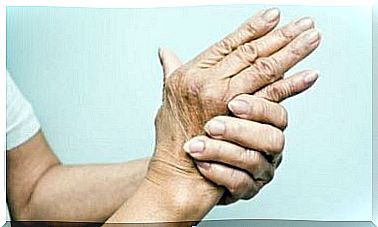Sleepless Nights – How To Make Up For Lost Hours Of Sleep?

If it seems to you that if you balance the economy of sleep and rest in your body after one long night and more sleep the next day – unfortunately you are wrong. Sleepless nights are irreversible when it comes to their impact on our body. It is biologically impossible to regain lost sleep.
Find out more about it. As long as you don’t read it at night, skipping the next hours of proper rest!
What we lost during the sleepless hours cannot be recovered. Moreover, if the sleepless nights are repeated, it can lead to health problems.
The body needs a certain number of hours of rest each day to function normally. Proper sleep is between 7 and 9 hours a day. If you sleep less, sooner or later you will experience negative effects.
If the body does not complete its cycle, it starts the next one with this deficit. The next cycle, however, does not borrow anything from the previous one to balance its work. It continues, independently, without looking back.
In this article, you will learn how sleepless nights affect our health and why we cannot recover them.
Architecture of sleep and sleepless nights
Sleep is at the heart of our lives. Our body would not function without it. The structure of our sleep is studied on the basis of 3 most important factors:
- the bioelectrical activity of the brain,
- eye movements,
- muscle tension.
Although we mention in this article the necessary and appropriate dose of hours devoted to sleep, it is worth remembering that our needs are strongly regulated by genetic factors.
The amount of sleep depends on things like how long a person’s sleep cycle is and how many cycles it takes to get enough sleep. Our age is also of great importance.
Sleepless nights – how do they affect our body?
Sleep is a fundamental physiological process for humans and for many animals. In fact, the brain does not rest during sleep, but is more active. It contributes to the development of basic organizational and self-healing processes.
When you have trouble sleeping, it affects your cognitive processes. You no longer process information in the same way, you lose your ability to learn, and you may have trouble concentrating it. Also, your mood tends to decline (due to negative effects on the amygdala).

- If your life works according to the scenario of going to bed late and getting up early – you are exacerbating the deficit mentioned. Imagine a situation where you go to bed at 2 am and wake up at 7 am.
- You owe your health and body at least two hours each day! And the debt is increasing. A week is the equivalent of 14 hours, or two full nights of sleep. So you are in debt to your own health, acting to your detriment.
- If this condition persists for a long time, the health consequences can be serious and permanent. This means that usually your intellectual performance is limited, you face a bad mood. These are just some of the problems that await you.
- The latest research shows that one sleepless night can lead to a loss of as much as 70 percent. all cells of the immune system.
Getting enough sleep is impossible. Recovering lost hours as well. A lifestyle based on good habits is extremely important. Think about your rest routine.
Sleepless nights – will you regain lost hours?
In addition to the previously mentioned consequences, we can add a “circular rhythm” to the list. This is the kind of biological clock we all have. Its direct consequence in the disturbed economy of sleepless hours will be: chaos in the production of hormones.
Our entire body works in a synchronized manner. However, if something stands in our way – everything is disturbed. It is as if we forcibly changed the movement of one hand of a clock, hoping that it would not change the time and cause confusion.
- Changes in the production of hormones cause, for example , weight gain, problems with appetite and skin diseases.
- In the long run, your entire metabolism changes. This increases the likelihood of serious diseases such as diabetes, high blood pressure and even heart problems.
Hygiene of our sleep – the most important information
Instead of worrying during the day and at night – change your habits that will allow you to develop the right style of rest and take care of your health. We recommend some great ways below:

- He will know the rhythm of his sleep. Do yourself a short self-diagnosis. Record the time you go to bed and when you wake up for approximately 15 days. This will allow you to determine what steps should be taken to improve sleep and rest hygiene.
- Customize your surroundings before going to bed. Eliminate strong lights, noises, and any stimuli that could turn your dream into a nightmare.
- A good bed is essential. If there’s anything worth investing your money in, it’s a good bed. You’ll likely spend a third of your life in it, so it should be comfortable.
- Set a schedule. Always go to bed at the same time and try to get up at a similar time. Keep this schedule for 45 days and it will become a habit. Make sure you get at least 7 hours of sleep each day .
- Exercise and relax. In order to get better sleep, we should exercise actively at least 15 minutes a day. But never do the exercises in the hour devoted to your rest.
- Carefully plan time for activity, work and a moment for yourself. Relax just before collapsing into Morpheus’ arms.
Scientists at Michigan State University warn that lack of sleep simply destroys our brain. Not only does it make it difficult for us to remember, but it can also falsify information. There is a situation where our brain tells us that we allegedly participated in situations that never happened.
Summary
The well-known socialist and researcher on the subject, Steven Feinsilver, director of sleep medicine at Lenox Hill Hospital, says that long periods of functioning without sleep lead to a completely zero capacity of our mind to form memories.
It also greatly increases the risk of developing Alzheimer’s disease in the future . By leading to a situation where we do not get enough sleep within 24 hours, the so-called sleep the brain.
After 48 hours without sleep, your body may go into psychosis. The body is so tired that it ceases to control more vital functions every moment. Scientists say that if you exceed a certain limit of complete insomnia – it can even lead to death.
A very interesting effect was also noticed in the context of cardiovascular diseases. Research has shown that on the day you switch to daylight saving time (when you lose an hour of sleep), there is a 25% increase in the incidence of heart attacks.
Sounds serious right? We should never underestimate the hygiene of our sleep and its health value.









